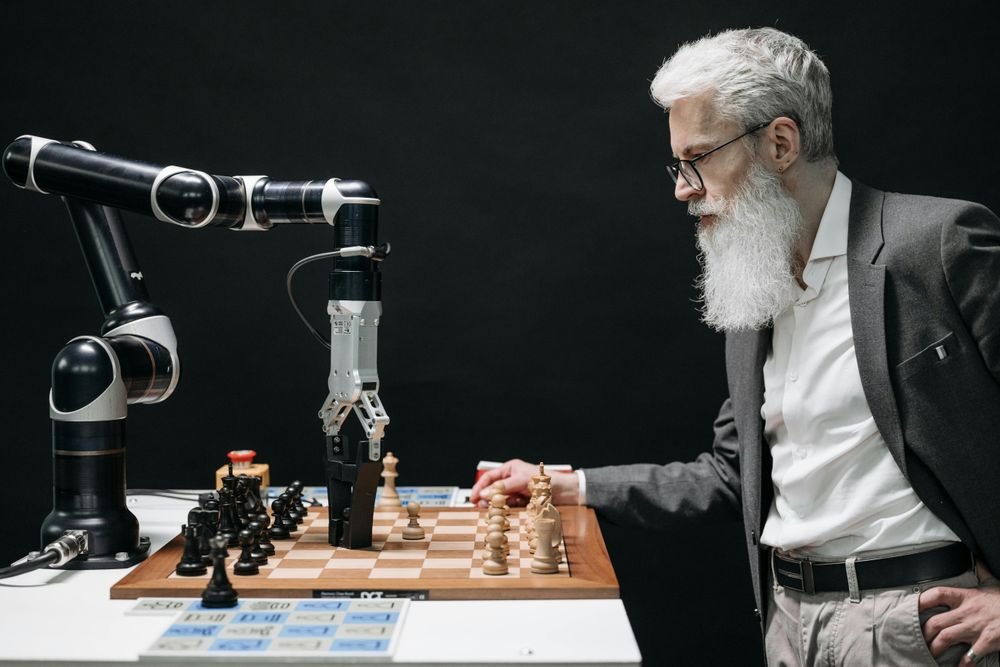The quest for knowledge has driven humanity forward since the dawn of time. In antiquity, wisdom was often passed down through spoken language. With the advent of the written word, knowledge became more easily shareable, paving the way for collective intelligence. Fast-forward a few millennia, and the methods we use to search for information have evolved in leaps and bounds. Could it be said that the dictionary was the original search engine? And if so, are today’s Language Learning Models (LLMs) like GPT-4 the latest iteration? Let’s dive in to explore how human knowledge has progressed through different “search engines” and what the future might hold.
The Dictionary: The First Search Engine?
Long before the internet and the advent of digital search engines, dictionaries provided an organized, easy-to-search repository of human knowledge, albeit limited to word meanings and usage. A user could open a dictionary to any page and find a wealth of information about language, etymology, and syntax. In a way, dictionaries democratized access to linguistic knowledge, similar to how search engines have democratized access to all forms of knowledge today.
The Internet Era: Google and Beyond
With the rise of the internet, our methods for information searching have drastically changed. Google, Bing, and other search engines have taken the role of dictionaries in helping us explore not just language but virtually all facets of human knowledge. You type in a few keywords, and in milliseconds, a ranked list of relevant information appears. The internet became a sprawling digital library with a powerful search function, drastically expanding our access to information.
The Age of LLMs: Next-Gen Search?
In the current era, Language Learning Models (LLMs) like GPT-4 are becoming increasingly proficient at understanding human queries, parsing through enormous datasets, and generating human-like responses. Unlike traditional search engines that provide a list of links, LLMs can generate text that directly answers questions or provides explanations. They can even engage in meaningful dialogue, simulate conversation, and offer more context around a subject. In that sense, they are the next evolutionary step in information searching, merging the world’s information with machine-generated insights and explanations.
What the Future Holds
The future of knowledge search could involve even more advanced LLMs, possibly integrated with other forms of artificial intelligence like image and voice recognition. Imagine asking a question and receiving not just a text-based answer but an interactive multimedia presentation, synthesized in real-time, providing a 360-degree view of the topic at hand.
Other future possibilities might include:
- Brain-Computer Interfaces (BCI): Directly linking our minds to databases, essentially integrating a search function into human cognition.
- Decentralized Knowledge Networks: A blockchain-based information repository that ensures reliability and validity through community verification.
- Automated Research and Analysis: Advanced algorithms could parse through scientific literature to propose new theories or even carry out virtual experiments, thus aiding human researchers.
- Personalized Knowledge Exploration: Your personal AI assistant, familiar with your learning style, could curate bespoke educational journeys for you, learning alongside you as you go.
Conclusion
From dictionaries to internet search engines to Language Learning Models, each step in the evolution of “search” has represented a leap in our collective ability to access and understand knowledge. As technology continues to advance, the ways we search for and interact with information will continue to evolve, potentially bringing us closer to an era where knowledge is not just searchable but deeply integrated into our daily lives and even our own cognition.
The journey from the first dictionary to today’s LLMs illustrates how far we’ve come in making knowledge accessible and understandable. One can only wonder—and eagerly anticipate—where the next evolutionary leap will take us.

